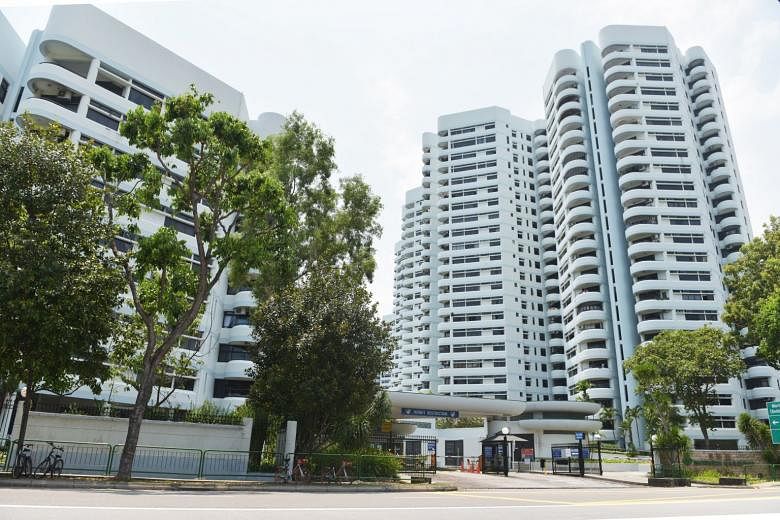SINGAPORE - The collective sale market is nearing the peak of its cycle, one year into the boom, with real estate players paying smaller premiums and likely to go for smaller sites, RHB analyst Vijay Natarajan said in a report out on Tuesday (April 10).
While the overall value of collective sales is expected to cross the previous year's S$8.2 billion figure, the market is likely to peak by the second or third quarter, with the supply pipeline being steadily built up and developers' land banks largely restocked, he predicted.
Developers have become "very selective", and tighter policy measures are also taking their toll on the appeal of collective sale projects, he said. Such measures would lead in a move towards "small- to mid-sized sites that have good location attributes and amenities".
"The fatigue is starting to be reflected in the premium developers have paid over the reserve price, which has halved to 5 per cent this year compared (with) 10 per cent in 2017," Mr Natarajan noted.
The report added that developers are also keeping an eye on the sites to be released in June under the government land sales programme - which would present an alternative source of land.
Recent tightening moves in the collective sale market include the rise in development charges for non-landed residential projects, which were hiked in February 2018 by an average of 22.8 per cent, while redevelopment proposals have had to come with a traffic impact study since November 2017.
The Monetary Authority of Singapore has also moved for closer scrutiny of bank financing for development projects.
Still, all this comes even as 20 sites have been sold en bloc in the year to date - against 28 sites in all of 2017 - with "more than 100 sites" reportedly still available, Mr Natarajan noted.
He held to an "overweight" call on the real estate sector with a positive near-term outlook, as property prices are expected to rise by 5 per cent to 10 per cent on the previous year, supported by "ample liquidity" from collective sales, lower unemployment and higher economic growth.
But he said that "we remain cautious on the longer-term outlook and sustainability of steep price increases" on factors such as population growth, a weak rental and resale market, and the prospect of interest hikes.


